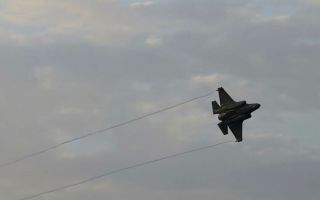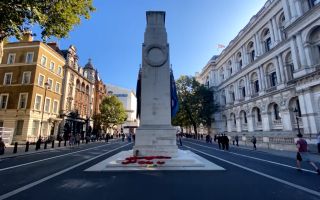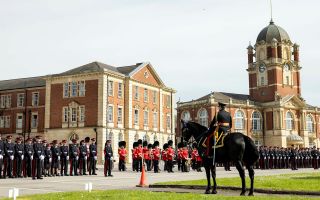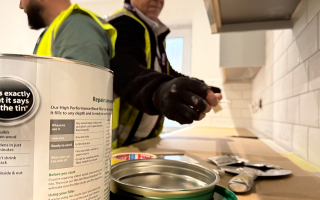Tri-Service
Help For Heroes Boss: "Stop B*tching And Support Our Troops"
The boss of military charity Help for Heroes (H4H) has hit back at criticism of how it spends its money, calling on those "bitching" about its operations to instead support wounded soldiers and their families.
Bryn Parry, the organisation's chief executive and co-founder, said: "We're helping people get better, not running a hotel chain."
It comes after the flagship project to provide support for injured troops was criticised for going millions of pounds over budget and failing to establish the level of need across the Army.
The plan to build a national network of Army Recovery Centres to provide support to injured troops were launched in 2010 as a joint partnership between the Ministry of Defence, H4H and the Royal British Legion (RBL). They all dispute the allegations.
The claims, published in the Times newspaper, centre around cost and over provision at the four centres, in Colchester, Catterick, Wiltshire and Plymouth.
Earlier this year Kate Gerbeau met Bryn Parry, and asked him about H4H:
The paper had access to an internal Army review, which they say contains allegations of costs rising from £70 million to £350 million and a lack of evidence and reliable statistics behind the decisions on capacity at the centres.
Following a Freedom of Information request the Times say that between August 2013 and January of this year only around half of the bedrooms at two of the largest facilities were being used.
Lieutenant-Colonel Jonathan Sutton, the man described by the Times as a de facto Chief of Staff on this project, has since left the Army, but told Forces TV he's spent the last three years "banging on about this".
He's been querying the spending of what he described as "other people's money" - that is, funds donated via H4H and the RBL - and he laid responsibility for the alleged failures firmly at the door of the Army.
Lt Col Sutton said: "The team used to joke how it was like trying to build an aeroplane while taxiing down the runway, someone had forgotten to bolt the wings on, air traffic control didn't know how useful a flight plan might be.
"A few, including myself, warned our senior officers. We were shouted at or just ignored."
He told The Times: "We were spending lots of other people's money - that people had biked, climbed, run and swum for - on bricks and mortar without a clear audit trail about how we got to this position.
"It really worried me and, of course, the costs kept on going up. I thought this was scandalous."
But in an open letter, Help for Heroes co-Founder Bryn Parry has hit back hard against these allegations. Mr Parry defended the charity's ambition, saying:
"To be clear, we were asked to provide the minimum, but with wholehearted support from our donors, we chose to provide the best. Surely that’s what our wounded deserve
"Recovery is not measured in the number of beds occupied on any particular night; we are not running a Travelodge. These centres are helping to rebuild lives."
The charity has said the 50% occupancy allegations only relate to serving personnel and do not take into account veterans, saying that when these are included figures rise to 70%.
They also note that the four centres are all located within garrison towns so some soldiers may be receiving treatment but choosing to travel the short distance home to overnight. The letter ends on fighting form:
"It would be brilliant if the naysayers would stop bitching about Help for Heroes and come and do something to help our wounded and their families. Our boys and girls deserve the very best and we will continue to ensure that they get it."
The Ministry of Defence has also defended its position. In a statement a spokesperson said the recovery capability was developed at some speed:
“There was a shared vision to meet the challenges of Iraq and especially Afghanistan - we believe what we have delivered is a significant achievement in an incredibly short period of time.
"Inevitably in an unprecedented project of this complexity, aspects of implementation... have had to be adjusted... and greater numbers of wounded, injured and sick personnel are now using the PRCs during their recovery, alongside veterans."
Click here to read Bryn Parry's open letter in full.









